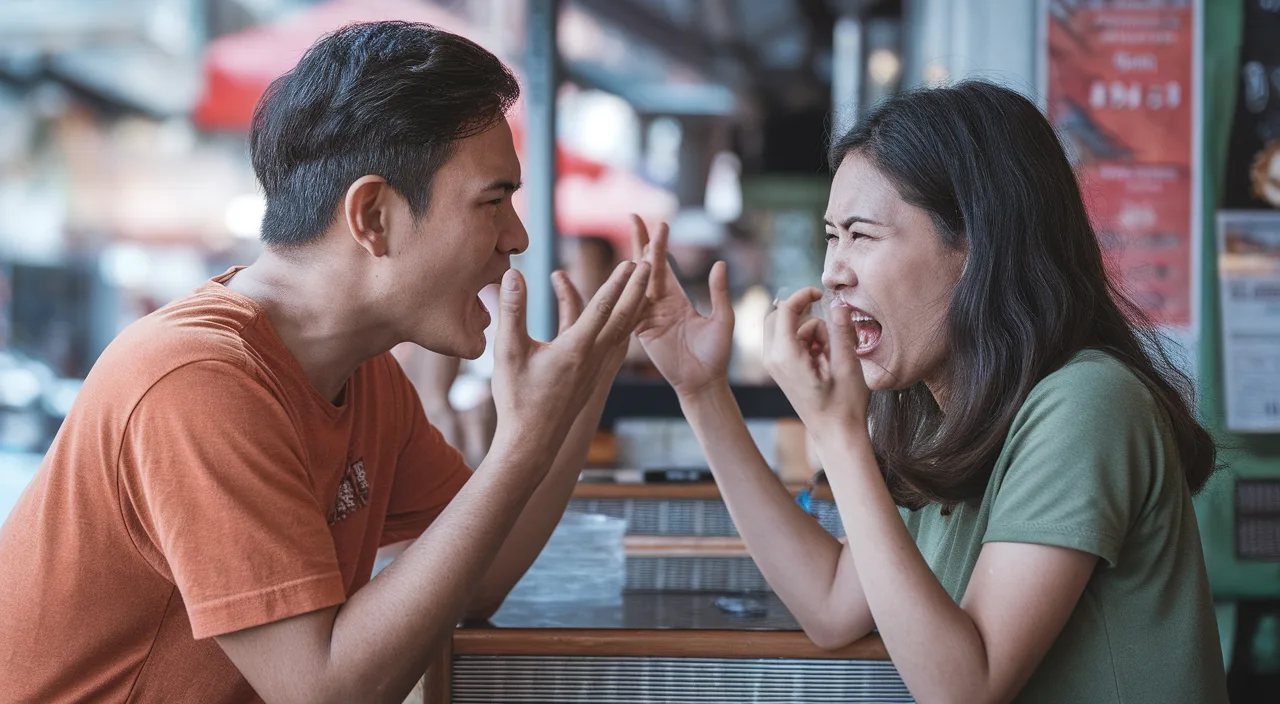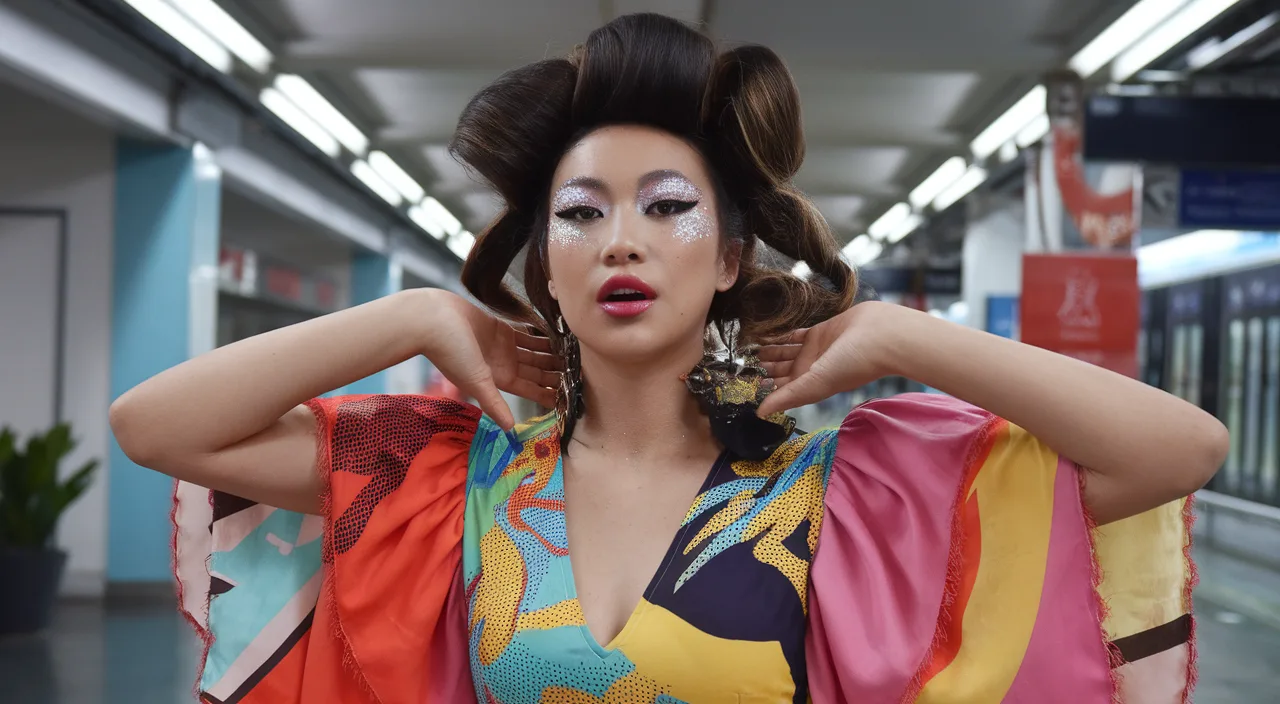Discover the hilarious and culturally rich meaning of ‘eat snake’ in Singlish with this comprehensive guide, perfect for Singaporean Gen Zs and young working adults. Learn the origins of this unique local expression, how and when it’s used (and misused), and why Auntie and Ah Ma still love throwing it around. Packed with personal anecdotes, witty commentary, and real-world examples, this article unpacks the phrase with the warmth of a kopitiam conversation. Whether you’ve been called an ‘eat snake’ expert or just overheard it in the office pantry, this write-up helps you understand its cultural depth, linguistic value, and emotional weight. We’ll even tell you how not to get caught ‘eating snake’ at work—unless, of course, you’re a true master.
News & Article

How to Use ‘Hor’ for Maximum Drama in Singlish Conversations
Drop one ‘hor’ and your whole conversation explodes into Singaporean-style drama — that’s the power of Singlish. In this witty yet deeper dive, we unpack how to use ‘hor’ for maximum drama in Singlish conversations and look at its secret codes. From making a casual statement feel like a mic drop moment to subtly throwing shade in a hawker queue, mastering this tiny word can turn your Singlish from shiok to solid gold. We explore the importance of timing in Singlish, how to avoid sounding fake, and when to use this word like a pro. Whether you’re trying to flex your Singaporean lingo or just want to level up your daily chats with dramatic flair, this guide has all the juice. We also highlight cultural etiquette behind the ‘hor’, analyze its drama-queen potential, and give you real-world examples guaranteed to make your friends go, “Steady lah!” Ready to dominate your next group chat or TikTok caption with maximum impact? Let’s dissect this magic word ‘hor’.

How to Win Every Singaporean Argument Using This One Singlish Phrase
If there’s one phrase that encapsulates the art of arguing in Singapore, it’s ‘kick your backside’. Equal parts mock-threat, friendly scolding, and expressive flair, this iconic piece of Singlish has become the national spice in countless Singaporean arguments. From kopi tiam squabbles to office drama and family disputes, we’ll explore why this phrase just works. Dive into the local color, understand the nuance, and pick up practical tips on how to resolve conflicts in Singlish with heart — and humour. Whether it’s a full-blown shouting match or a jokey jab, ‘kick your backside’ is more than words — it’s a cultural moment, Singapore-style.

Master Queen Control in Singlish: Navigate Social Dynamics Without the Drama
Queen control in Singlish isn’t just some atas way of showing off—it’s the art of being in control without looking like you’re trying too hard. In this cheeky and culture-packed guide, we’ll explore the nuances behind this uniquely Singaporean social skill. From understanding how it pops up in everyday conversations (“Wah, she queen control sia!”) to dishing out real-life dos and don’ts for managing social dynamics, this blog dives deep into the why and how of it all. Perfect for Singaporean Gen Zs and working adults who want to level up their group chat game, own the room (quietly), and finesse sticky friend situations without being labelled drama queen. You’ll learn how to read local customs, deliver subtle cues, and balance assertiveness with humility. Whether you’re leading a team meeting or navigating group holidays with friends, this is your unofficial user manual for mastering Queen control without stepping on any toes—or deflating any egos.

Complete Guide to ‘One Time Big Time’ – Singapore’s Most Dramatic Singlish Phrase
‘One time big time’ is one of those Singlish catchphrases that all Singaporeans have heard at some point—at hawker centres, among NS boys, or shouted across kopitiams. But what does it really mean? This comprehensive guide explores the meaning of ‘One time big time’, how it reflects our unique local identity, uncovers its roots in regional dialects, and examines the fine line between local pride and overusing Singlish expressions. Learn when to use it appropriately, how not to overdo it, and why understanding Singlish culture helps preserve Singapore’s linguistic diversity. This guide covers everything about local slang in Singapore—complete with real examples, cultural insights, and expert tips on code-switching based on your setting. Master this iconic phrase and discover how Singlish catchphrases connect us as Singaporeans.

So Suay Meaning: Complete Guide to Singapore’s Most Relatable Singlish Expression
So suay meaning decoded: Let’s talk about ‘so suay’ – the ultimate Singlish phrase for pure, next-level bad luck. If you’ve ever missed your MRT by one second, spilled kopi on your white shirt before a date, or kena bird poop during lunch, guess what? That’s ‘so suay’ in living colour. In this comprehensive guide, we explore the so suay meaning, its cultural significance in Singaporean daily life, and how it’s woven into conversations from kopitiams to office gossip sessions. We’ll break down how to use ‘so suay’ naturally, why it’s more than just complaining, and share real-life examples you’ll definitely recognize. Whether you’re Singaporean, perpetually unlucky, or an expat trying to decode Singlish expression ‘so suay’, this guide will help you understand and use it like a true-blue local. After all, in Singapore, suay-ness is practically a shared language that brings us all together.

Master Action Only: The Ultimate Singlish Phrase to End Any Argument
If you’ve ever been caught in a typical Singaporean argument — fiery but laced with humour — chances are someone ended it with a sharp, punchy phrase: Action only. This iconic Singlish expression has been tossed around kopitiams, classrooms, and family WhatsApp chats for years. In this comprehensive cultural breakdown, we explore how Action only evolved into the ultimate way to call someone’s bluff, settle petty disputes, or shut down over-the-top boasts. More than just a phrase, it’s a cheeky badge of local warfare—with less punching, more paiseh. We’ll dive into real-life examples, practical ways to use it, and how understanding this one Singlish phrase unlocks insight into how Singaporeans argue, forgive, and carry on like nothing happened. Whether you’re a Gen Z TikToker or ’80s kid who remembers arguing over Five Stones rules, you’ll understand why Action only is timeless, useful, and uniquely Singaporean.

Ah Lian Singapore: Complete Guide to Singlish Culture and Fashion Trends
Ah Lian is more than just a stereotype—it’s an attitude, a fashion statement, and a reflection of Singapore’s vibrant, unapologetic youth culture. From the unmistakable Singlish sass to the instantly recognizable style, every Singaporean has an Ah Lian story, or at least a friend who gives off serious Lian energy. This article is your deep dive into all things Ah Lian: how the term came about, why people started using it (sometimes offensively, sometimes lovingly), and how it’s morphed into a badge of pride for many. Whether you’re confused by the difference between Ah Lian and Ah Beng, or you’re secretly in love with leopard print, we got you. Discover the evolution, the stereotypes (and why they don’t hold up), the pop culture moments, the latest Ah Lian fashion trends in Singapore, and why you just might be a little bit Lian yourself.
